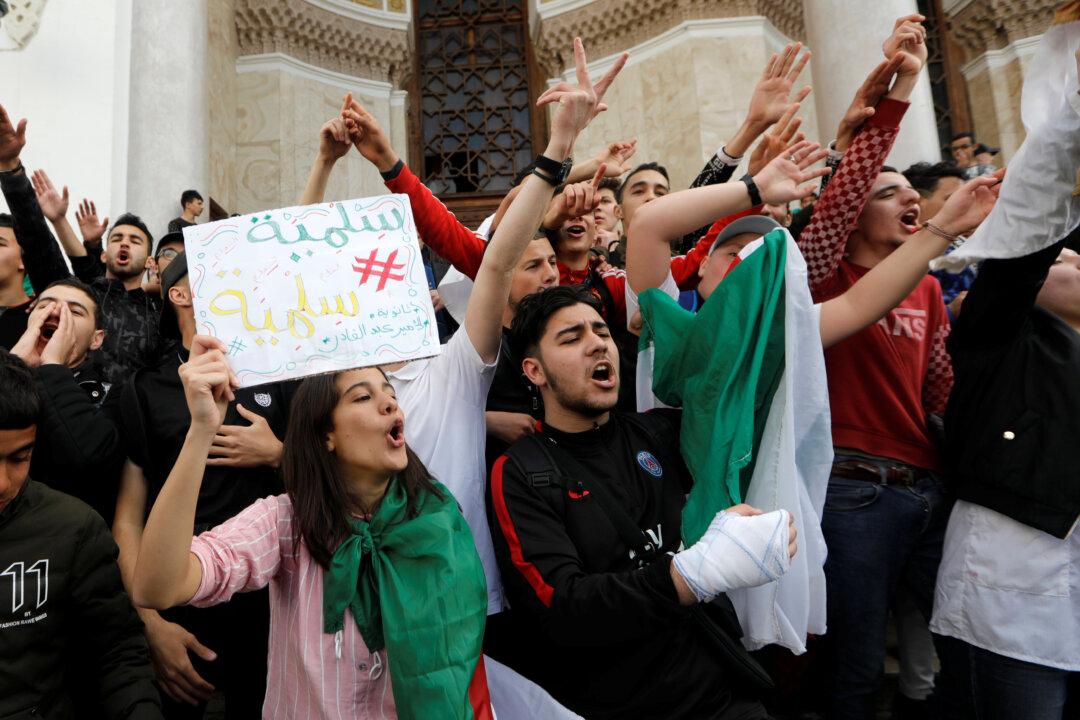ALGIERS—President Abdelaziz Bouteflika flew home to Algeria on March 10 after spending two weeks in a Swiss hospital, state television said, returning to a country where crowds of protesters have mounted the biggest threat to his 20-year rule.
A government plane transporting the ailing president arrived at Boufarik military airport near the capital, Algiers. Ennahar TV showed footage of what it said was a convoy of vehicles transporting him.





